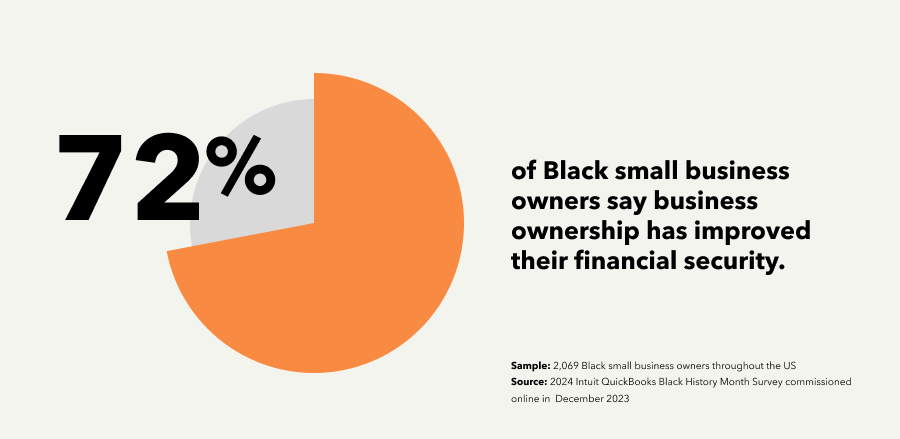Black-owned small businesses are at the forefront of innovation. They’re embracing technology, trailblazing in their families and communities with entrepreneurship, and powering employment across the country — but not without barriers.
QuickBooks data from last year and this year’s Intuit QuickBooks Black History Month Survey shows that the financial success of Black small businesses is often threatened by harmful biases, stereotypes, and racial disparities. And while Black business health is strong for many, a sizable portion is still struggling.
Part of championing Black entrepreneurship means understanding their specific pain points. As an advisor, it’s important to understand their vulnerabilities and the unique challenges Black entrepreneurs face to provide more holistic support.
In honor of Black History Month, Intuit QuickBooks commissioned a survey of 2,069 Black business owners with 0-100 employees* to investigate how these innovative entrepreneurs are navigating their finances and the small business landscape amid these uncertain economic times.






